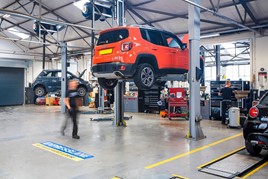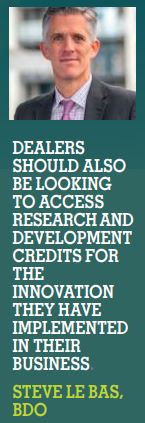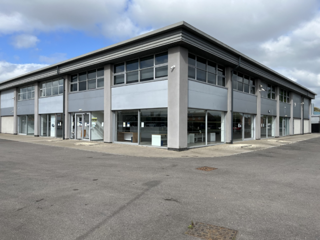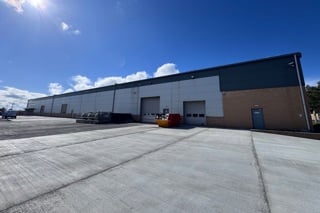The year ahead has the potential to be one of the toughest yet for dealerships. Motor retailers face a multitude of economic headwinds, from soaring energy bills to near 40-year-high inflation. But, despite all these challenges, there is still financial support available to help strengthen their businesses, writes Alex Wright.
“It’s going to be a difficult year, there’s no doubt about it,” says Alastair Cassels, head of automotive advisory at accountants MHA Macintyre Hudson. “But, that said, there are a number of key opportunities that dealers should be looking to make the most of during this period of turmoil and uncertainty.”
With the Government raising taxes in a bid to tackle soaring debt, dealers can offset their bills by claiming capital allowance on items such as plant and machinery and upgrading their facilities. Given that the 50% first year allowance and superdeduction are both set to end on March 31, retailers need to maximise their tax relief on planned investments, ensuring any expenditure qualifies as such and is incurred before then.
“There are some good capital allowances available to dealers for capital expenditure on fixed assets,” says Steve Le Bas, partner and head of motor retail at BDO. “Dealers should also be looking to access research and development credits for the innovation they have implemented in their business, particularly around IT and other processes.”
 RSM head of motor retail Alison Ashley adds: “Most plant and machinery expenditure qualifies for the annual investment allowance, which provides 100% relief for the first £1 million of expenditure of each financial year.
RSM head of motor retail Alison Ashley adds: “Most plant and machinery expenditure qualifies for the annual investment allowance, which provides 100% relief for the first £1 million of expenditure of each financial year.
“Where the annual investment allowance is unavailable or has already been utilised, writing down allowances for plant and machinery can vary from 100% relief in the year of acquisition for electric vehicle charging points to 6% per year on a reducing balance basis for expenditure on a new lighting system.
“Expenditure on new commercial buildings that does not qualify for plant and machinery allowances may attract a structures and buildings allowance of 3% of cost per year. So, it’s important to involve a specialist capital allowance advisor to ensure the maximum relief is claimed in the correct timescale.”
In addition, retailers buying commercial property as an investment or for their own business use must carefully consider how the structure in which they will hold the asset will impact their tax liabilities. Given the recent changes to the way property is taxed, such ownership structures should also be reviewed by experts who can help find the right solution.
For owners seeking to reduce their tax liability on death or disposal of their business, there are several reliefs and reduced rates available subject to proper planning and structuring. To take advantage of them, they must plan well ahead to open up more options and planning opportunities.
RENT AND REFINANCING
 Retailers should also regularly review their rent and business rates. With more premises becoming available as dealerships rationalise, there’s also greater opportunity to negotiate better rentals. In terms of business rates, dealers should engage a chartered surveyor or property consultant to look at what they are paying and, if necessary, appeal. This is essential if they haven’t been re-rated for several years, or have changed their premises layout or repurposed it.
Retailers should also regularly review their rent and business rates. With more premises becoming available as dealerships rationalise, there’s also greater opportunity to negotiate better rentals. In terms of business rates, dealers should engage a chartered surveyor or property consultant to look at what they are paying and, if necessary, appeal. This is essential if they haven’t been re-rated for several years, or have changed their premises layout or repurposed it.
“If the dealer has, for example, converted a showroom into a workshop, then it would, potentially, have a different rateable value,” says Cassels. “There is also evidence that tenants evaluating end-of-lease options may have more alternatives than in the past as the continued trend is for franchise locations to reduce and, therefore, relocating at a lease expiry might be a good option.”
 Another option is for dealers is to refinance their debt to secure more favourable terms. With interest rates forecast to continue rising in response to inflation and the September mini-budget, now may be an opportune time to do so. First though, they need to evaluate existing arrangements and any covenants before determining how future borrowings may be structured.
Another option is for dealers is to refinance their debt to secure more favourable terms. With interest rates forecast to continue rising in response to inflation and the September mini-budget, now may be an opportune time to do so. First though, they need to evaluate existing arrangements and any covenants before determining how future borrowings may be structured.
“Motor retailers are taking the opportunity to look at any debt financing they have got and make sure it is presented in the right way so they have got the right short-, medium- and longterm financing in place,” says Cassels.
“With the Bank of England base rate at 3.5% (before February’s 0.5ppt rise) and market predictions it will rise to 4.5%, meaning borrowing costs are likely to increase, dealers should consider whether it makes sense to refinance their debt now.”
FAVOURABLE RATES
For dealers who are locked in at a favourable rate for a long term, it may be better to stick with it for the foreseeable future. Those that decide to refinance should look to specialist or sectorfocused lenders that have the knowledge and expertise to understand their business model and can provide them with a capital buffer.
While there have been no new Government grants or loans to support businesses since the COVID-19 pandemic, there are other schemes available. Retailers that sell or service electric vehicles (EVs) should assess whether they can claim 75% of total costs of charge points under the Government’s Workplace Charging Scheme. Support is capped at £350 per socket, but it can be claimed for up to 40 – so funding charge points installed for demonstrators, courtesy cars and aftersales.
Dealers can also take up salary sacrifice, where employees can receive an EV company car, with the money taken out of their pay before personal tax is calculated. Providing this an incentive can help with retention and reduce staffing costs. Additionally, retailers can fund trainee programmes, either through the apprenticeship levy or Governmentfunded schemes. There are also training programmes to help recruit or train staff through funded schemes such as digital, English and maths, skills boot camps, sector-based work academies and T Levels.
As well as maintaining a strong balance sheet and access to additional working capital to withstand any shocks in the current downturn, dealers need to think ahead by investing in market diversification, product development and accelerated digital transformation.
By capitalising on these financial opportunities, they can continue to thrive in this adverse economic climate.



















Login to comment
Comments
No comments have been made yet.